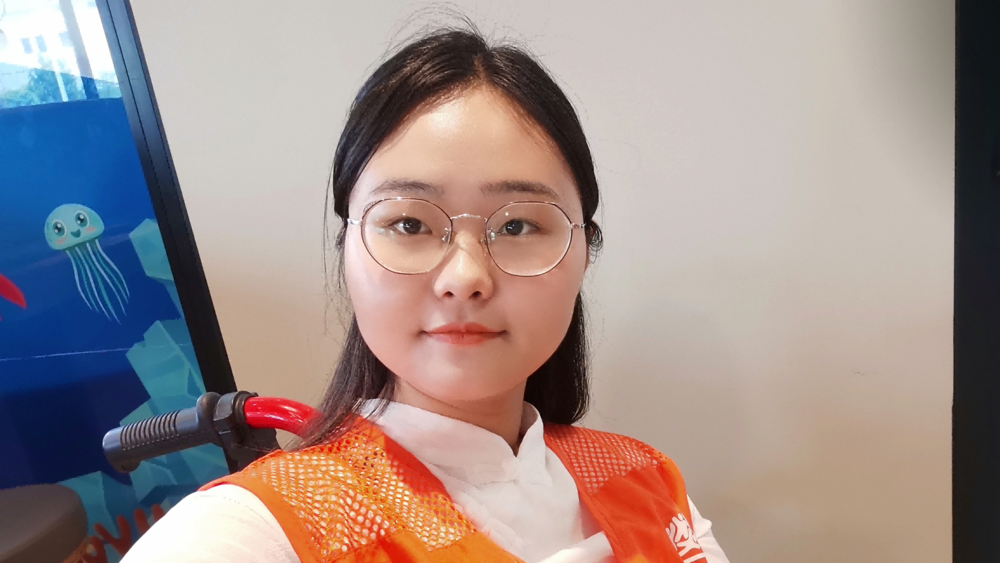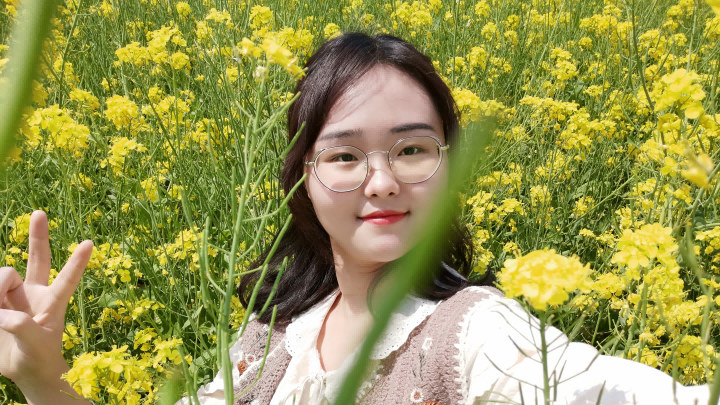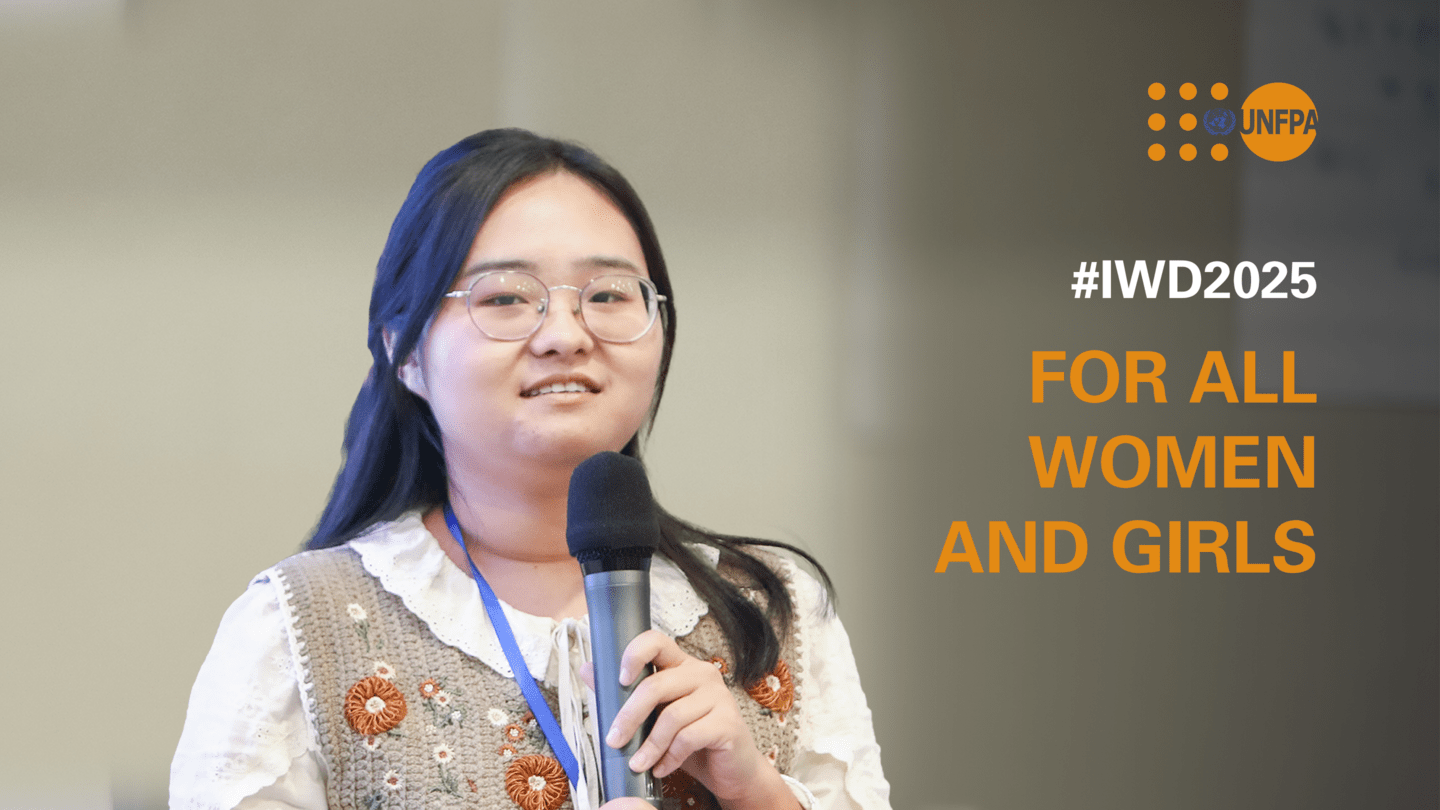The 2025 theme for International Women’s Day this is “For ALL women and girls: Rights. Equality. Empowerment.” It calls for action that can unlock equal rights, power and opportunities for all and a feminist future where no one is left behind.
Han Jinying, a civil society volunteer, talks with UNFPA about her experience as a woman living with fragile bones and her advocacy for disability inclusion and universal access to sexual and reproductive health information and services.

Building inclusive medical spaces for women with rare diseases
Disability and non-disability are merely shifts in perspective and should not be seen as opposing relations
Says Han Jinying as she speaks about the inclusion of people with disabilities. According to global epidemiological studies by the World Health Organization, 1 in 20,000 people are living with osteogenesis imperfecta (OI). Han Jinying, a young woman born in Henan, is one of them. OI makes her bones fragile and increases her vulnerability to physical threats.
While advances in medical and caregiving technologies have significantly improved the quality of life for people with OI, the topic of sexual and reproductive health and rights remains a silent taboo for Han and many women with disabilities.
Like women with other disabilities, women with rare diseases have few opportunities to learn about their bodies. During medical examinations in the hospital, she found that some facilities were not suitable for individuals with certain body types, creating difficulties for people who have the same special needs as her.
Additionally, some medical practitioners lack disability awareness and often approach patients from a non-disability perspective — for instance, asking questions to the guardians instead of the patients, or allowing guardians to make decisions. These practices lead to negative medical experiences, discouraging some women with disabilities from seeking routine healthcare consultations.
“What we need is to advocate for a harmonious and inclusive social environment, rather than being trapped in cycles of emotional self-consumption and inner struggle,” Han reflected.

Equal access to sexual and reproductive health information and services
In 2024, UNFPA conducted online and offline training sessions titled "Our Bodies, Our Rights!" These workshops were aimed at addressing sexual and reproductive health and rights issues for women and young people with disabilities and preventing gender-based violence.
The sessions encouraged women with disabilities to discuss their challenges in accessing barrier-free medical services and to advocate for their needs. Han Jinying signed up for the training workshops and participated in group discussions, exploring the inequalities in reproductive health and rights faced by women with disabilities.
In her group, there were women with different types of disabilities who shared similar experiences. They had received little medical services or educational resources on sexual and reproductive health, highlighting an urgent need for appropriate and accessible support.
While long-standing social issues cannot be resolved quickly, consistent advocacy can generate positive energy.
For her, the workshop was not just about spreading knowledge but also planting the seeds of action. When asked if she plans to continue similar activities in the future, she expressed a desire to become a sexuality education trainer, promoting awareness and advocating for more women with disabilities.
Although the promotion of disability inclusion and the advocacy for an accessible environment will be a long journey, it is an essential part of diversity and the state of life of all human beings.


